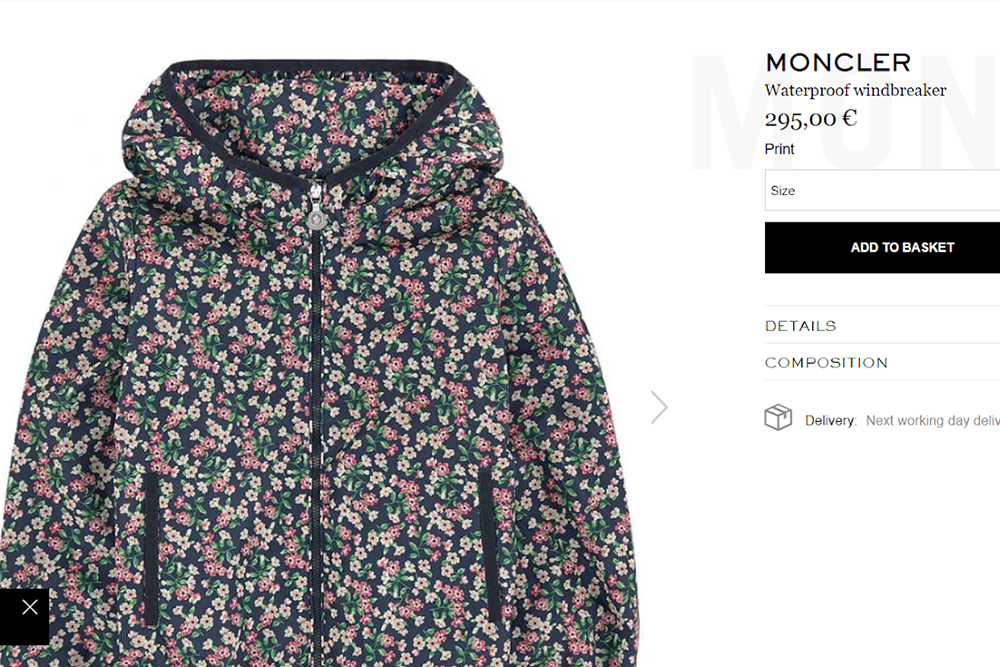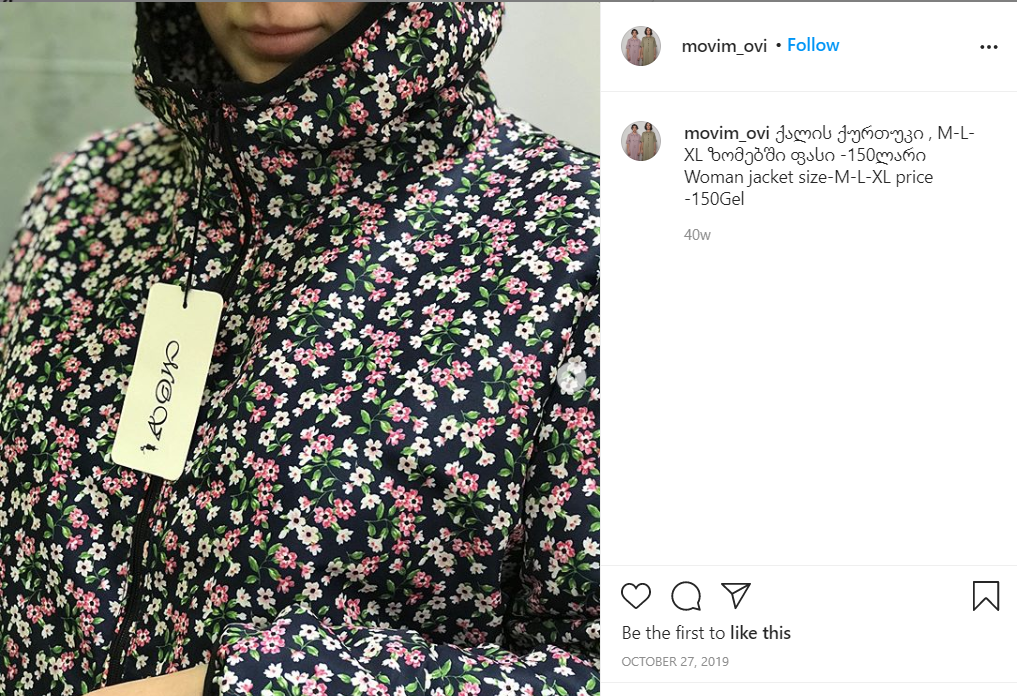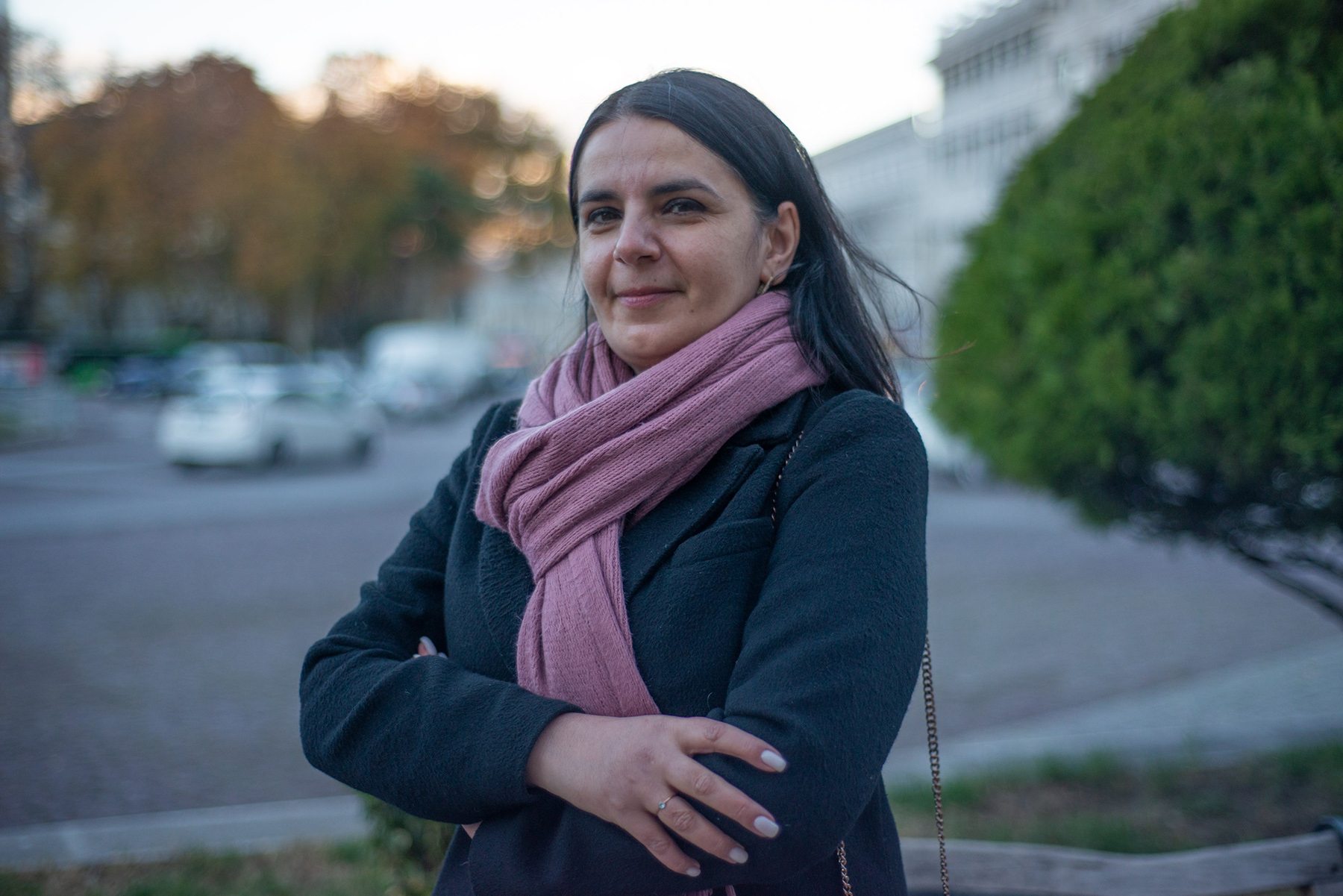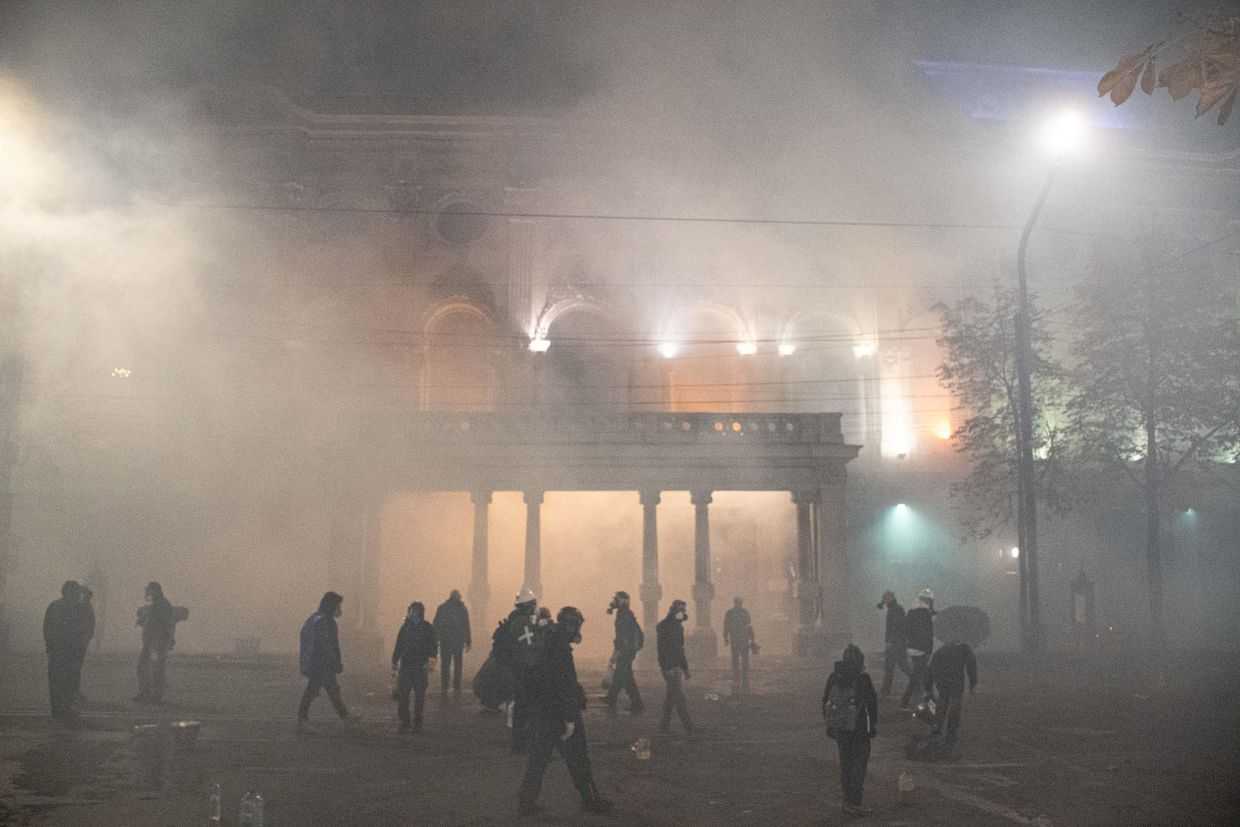
Two years after OC Media went undercover at a Tbilisi factory, a former worker reached out with a harrowing story of psychological and physical abuse.
When 46-year-old Eleonora took the job at a Eurotex-managed textile factory in Tbilisi, Georgia she was excited. She didn’t think that only a few years later, in this very factory, her life would flash before her eyes as a pair of hands tightened around her neck.
Eleonora Ter-Poghosyan was promoted to quality control within a year of working for Eurotex. Working side-by-side with representatives from the companies that contracted the Eurotex to manufacture their clothing, she was, technically, supposed to ensure that the coats that left the factory were free from nicks, tears, mismatched seams, or anything else that would not be expected of luxury outerwear.
It didn’t take her long to realise that, despite the eventual price tag of the clothing they were producing, quality always played second fiddle to quantity — meanwhile her job, often entailed little more than keeping her mouth firmly shut.
The key to this scheme was an equally high quantity of quality control staff, all of whom, for one reason or another would ‘get into trouble’ and be replaced before they would wise up to what kind of goods were coming out of the factory.
Same jacket, different company
Eurotex Ltd, legally owned by the Egeria group, is a limited liability company registered in Cyprus and managed by Marina Blakunova, who, at least on paper, is Egeria’s chief representative at the factory. It took over production at the Geo-M-Tex textile factory in 2015 — the same year Eurotex itself was created. While overseeing the factory’s operation, Eurotex had inked manufacturing deals with a variety of luxury clothing brands including Equiline, Dainese, Uvex, and Moncler.
A 2019 undercover investigation by OC Media uncovered a litany of abuses at the Eurotex-managed factory, which included harsh and often unsafe working conditions, as well as unpaid wages and a constant barrage of verbal abuse — much of it coming from Blakunova herself.
In August 2019, due to ‘bureaucratic difficulties’, as a Moncler quality technician Sandra di Giacomo told an OC Media source, they terminated their contract with Eurotex. After finishing with the Fall-Winter collection and sealing the deal for Spring-Summer, production of which would start in January, Moncler representatives left the factory.
In 2018, Veronika Blakunova, Marina Blakunova’s daughter unveiled ‘Movi’ her very own line of clothing. The items are produced at the Eurotex factory and sold in Georgia.
The exodus of Moncler reps from the factory coincided with a boom for Movi. A source inside Eurotex told OC Media that Movi used Moncler’s leftover fabric supplies for their own products, some of which are not only of the same material but also share a remarkable resemblance.
Moncler jackets usually retail between hundreds and thousands of dollars, meanwhile, nearly identical Movi jackets, apparently made from the same material, retail from ₾150 ($48) to ₾200 ($64).
This is not the first time a business owned by Marina Blakunova appears to have benefited from excess material leftover from Moncler production. For a previous OC Media story about Eurotex, former storage manager Madona Tarkhnishvili recalled that ‘Moncler’ coats that had, in secret, been smuggled outside the factory or gifted away — apparently without the fashion brand’s knowledge.
OC Media has reached out to Moncler for comment. The company replied that they would be conducting an internal investigation as they ‘treat their originality very seriously’.


Eleonora and the ‘traitor’
In February 2019, Uvex, a German brand of high-end winter athletic attire and a relatively new partner of Eurotex sent a woman named Jevgenija Prüssmeier to the factory. Unlike most foreign representatives at the company, Prüssmeier spoke Russian and asked factory director Marina Blakunova if she could work more closely with Eleonora, as she also spoke the language.
As Eleonora recalled, the two had a good working relationship. ‘We were never exactly friends, but we got along well. I observed her work and can vouch that she did her job with honesty,’ Eleonora told OC Media.
But after Jevgenija began to report a high number of flaws in the clothing produced by Eurotex, Blakunova grew increasingly frustrated with the Uvex representative. Once, Eleonora saw Jevgenija leave Blakunova’s office visibly scared. She recalled that for the rest of the day, the woman kept working but seemed distracted, and would stare off into space.
Eleonora said she couldn’t help but ask what happened.
‘She told me she was threatened,’ Eleonora said. ‘They told her she would be murdered and her body would never be found.’
Disturbed and not certain of how true such a serious accusation could be, she consoled her colleague but decided to keep the incident to herself.
Abuse at the factory was nothing new for Eleonora. As an experienced Eurotex worker, she knew that speaking up could only get you in trouble. Blakunova was known as a harsh boss, who often berated subordinates and would sometimes lock the factory doors and prevent workers from going home if they didn’t meet their daily quotas.
What was new this time, however, was that Marina threatened the representative of a foreign company.
Jevgenija continued working at Eurotex but Eleonora said she could sense a growing tension. Once, Jevgenija mentioned that no one wanted to work with Eurotex anymore — it was right around the time Moncler had concluded its contract with the company.
‘For such words’, Eleonora remembered Blakunova saying, ‘you’ll be shown out of my factory’. Then Blakunova had Jevgenija escorted off of the premises by security.
After another confrontation with Blakunova, Jevgenija took several days off. German management was concerned about the partnership, they had personally phoned Blakunova on the matter. That’s when Marina focused her attention on Eleonora. She began accusing her of befriending the ‘traitor’ Jevgenija, who according to Marina, was trying to discredit the factory in the eyes of foreign partners.
On 22 November 2019, Eleonora texted Blakunova, asking her about the threats made to the Uvex representative, she was called to Marina’s office immediately.
For her own safety, she decided to record the meeting on her phone. All further details of Eleonora’s story are corroborated by the recordings she has shared with OC Media.

‘No money can buy my silence’
Marina Blakunova was with two others: accountant Ana Andronikashvili and storage manager Robert Kveselava, when Eleonora walked into her office.
‘You are my employee and I’m paying your salary. When you heard someone talking shit about your director, you were silent.’ Marina can be heard saying to Eleonora.
Then Ana and Robert chime in, echoing Blakunova’s accusation with almost equal venom.
Eleonora then attempts to defend herself, to justify her actions. Denunciation is not her job, she tells Blakunova. She simply had a good relationship with a representative from a foreign partner.
Marina and her retinue appear to ignore this, and keep pressing Eleonora, until she can be heard leaving the room in a hurry. ‘I was short of breath already, I didn’t understand why I was treated so harshly. I remembered the threats made to Jevgenija and panicked.’
Eleonora began running — she just wanted to get out of the building. She got as far as the storage room when Marina and Ana caught up to her. They cornered her. Marina demanded an explanation for why Eleonora hadn’t reported Jevgenija telling her about the threats.
But Eleonora knew a lot of things that she never reported — including Veronika Blakunova, Marina’s daughter, repeatedly getting drunk at work.
In a split second, after keeping quiet for years, she decided to tell Blakunova everything.
The factory director, startled, called for Robert — who stormed through the doors and made a beeline for Eleonora. She said that it all happened in a flash. He reached out his hands, wrapped them around her throat, and began to squeeze. As her vision began to black out and she felt herself losing consciousness, he threw her hard against the wall.
Eleonora scrambled to regain her footing and ran. This time, no one chased her.
The police opened a criminal investigation into the alleged attack that same evening.
Robert Kveselava has since been charged with physical assault. The trial has not yet begun.
During the pandemic, the Eurotex factory shut down — though Movi has moved to the Gldani neighbourhood of Tbilisi. Neither Blakunova nor her daughter has faced any criminal charges relating to Eurotex. Uvex ended its cooperation with Eurotex in January 2020.
According to Eleonora, after she had gone to the police, Blakunova repeatedly tried to contact her and get her to recant her testimony, but the former quality controller has remained steadfast.
‘Marina said many times that anything can be bought’, Eleonora said. ‘But no money can buy my silence’.








